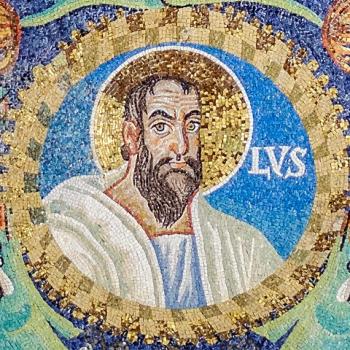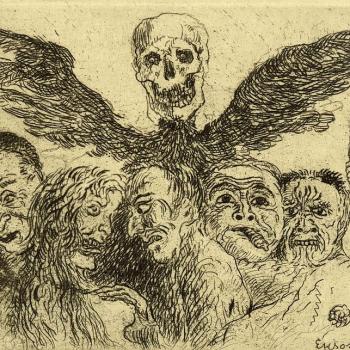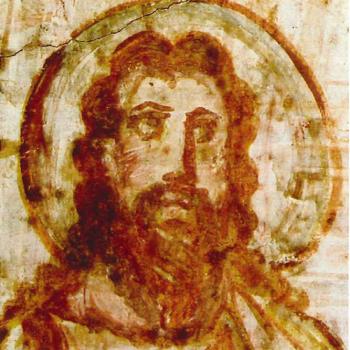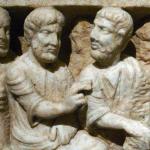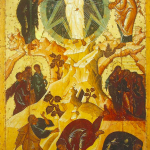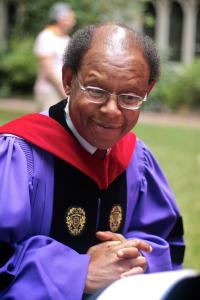
We can learn much from those who came before us. But, to do so properly, we must be willing to be critical, and examine what they said and did instead of merely accepting it all. We must engage them, willing to learn from their wisdom and knowledge, but also, we must be willing to distance ourselves from what they said which has since been proven false or unwise. We should not expect anyone to be perfect. We can appreciate from and learn from those who came before us without idolizing them, indeed, if we are to truly learn from them, we must be willing to see how and why they got things wrong so we do not repeat their mistakes.
Everyone is affected by the culture they are raised in, the culture they live in, and with it, the knowledge and understanding available to them based upon their place and time in history. No one is going to be able to question everything they were raised to believe or accept, even if and when they understand, like we do, how fallible their foundation is. Our culture influences the way we think, and with it, the way we raise questions, even when we live in resistance to our culture. Once we recognize this, we can recognize this is true for everyone, including those with the greatest intellects and wisdom, whenever and wherever they live or have lived. This is why we can be, and should be, critical, and even reject, things which have been handed down to us by previous generations while finding many things we need to learn from them, indeed, many things which they said and did which we can respect them for. Thus, when we look to the past, we will find many were wrong on things such as the acceptance of slavery, the acceptance of the death penalty, or their scientific understanding (such as in the realm of biology or cosmology). Often, because of the culture around them, and the state of the sciences in their time, people could not know better, and if they could not know better, their ignorance meant they were not always culpable for what they did wrong – this is not to say they are blameless, but, because we do not know what they could and should have known, we do not know how culpable they were for their actions, which is why we must leave it to God to make such a judgment call. James Cone, recognizing how this has come to play in the Christian tradition, said:
We cannot criticize the early Church Fathers for their failure to address the critical questions of our contemporary situation. They are accountable only for dealing with the historical issues in their time as they relate to Jesus’ presence among them. On the other hand, there are common elements in human experience that enable us to evaluate past interpreters of the faith. Since oppression of the wea by the powerful is one of those elements, we can put the critical question to Athanasius, Augustine, or Luther: What has the gospel of Jesus, as witnessed in Scripture, to do with the humiliated and the abused? If they failed to ask that question or only made it secondary to their interpretation of the gospel, then it is our task to make clear how their approach to the gospel differs from Scripture. [1]
Cone, therefore, points out that there are things which can be and should be held in common throughout the Christian tradition, things which, when people failed to follow them to the best of their ability, we can and should use to offer them proper criticism. However, he is also cautioning us when we do so, telling us that we should not be quick to condemn them for not answering questions they could not and did not have the ability to ask, let alone answer. We must understand the cultural framework which they used to explain the faith, and the way they thought Christians should live, for when we understand that, we can then better interpret and translate what they said to meet our needs today; thus, Jean Daniélou, writing about the Church Fathers, reminds us of their Hellenistic foundation and how, in and with it, we can find the Christian message, though often in a way which looks confusing to us today:
We are to look for it in the Fathers of the Church inasmuch as they are a witness of the faith of primitive Christianity. In them, we see this biblical theology as refracted through a Greek mentality, but this mentality affects only the method of presentation. The fact that the Good Shepherd appeared dressed as Orpheus does not alter the fact that it is He Whom Ezechiel announced, and Whom St. John showed us as actually having come in the person of Christ. [2]
Over time, there has been, and will continue to be, a growth in knowledge and understanding of the faith while, behind all such growth, there should be a core which can be and should be seen directing people in every generation. That core is given to us by the revelation of God revealed in and through the incarnation, including all that Christ taught. Everyone, those who came before us, those who come after us, and of course, our own generation, must strive to understand that revelation, the expectations it presents to us, and engage it. We must also understand that everyone needs grace, everyone, in their own way, will likely fail to meet the expectations of the Gospel. Even the greatest among us needs grace, as they will also fail to meet all that God expects from them. When we see such failure coming from those who are otherwise among the greats, we can, indeed, we should point it out, while still honoring all the successes. That is, we can honor the greats, the saints, while being critical of them and their failings. All of us, including, and especially, the saints, wrestle with God, with the truth which God has revealed, and all of us will find we are weak in comparison with God. We must accept that weakness, and our failures, for then we can turn our wrestling with God from an attempt to challenge God to an attempt to work with God and wrestle with God against our own worst instincts, accepting God’s grace to strengthen us and our resolve. When we realize our need for grace, we will understand the need we have for others to be merciful to us while helping us overcome our failing, and once we accept the way we need mercy, we will know how we should act towards others, treating them in the same way we want to be treated.
Thus, as Cone said, we should see how Christianity helps liberate and free people, that is, how it overcomes the structures of oppression, the structures of sin. The path of salvation is the path of liberation, the path by which we find ourselves overcoming sin, not just personally, but communally. If we ignore the communal element of liberation, if we make salvation only an individualistic enterprise, we have yet to truly understand the work of Christ and the way God works with the world: God works for the salvation of everyone, freeing everyone from oppression so that they can come together and be one like God is one. Similarly, if we just look at salvation as something which has ramifications at the end of time, or rather, beyond the end of time, and in an eternity which is absolutely distinct from temporality, we have yet to truly appreciate Christ’s work, for Christ constantly showed himself saving people from sin and all the unjust oppression sin caused them in their temporal existence. This is because Christ is the immanent eschaton, bringing the glory of the eschaton, the kingdom of God, with him, showing how the eschatological reality not only works in and with time, but does so in order to draw everything and everyone in time unto itself. Christians, as followers of Christ, are to continue with that work, bringing and promoting liberation in the world, liberation from sin, yes, but also from all the unjust oppression which sin causes people to suffer in their lives, including those sins which Christians themselves commit (such as spiritual abuse). Thus, when Christ’s work for liberation is thwarted, or worse, opposed by anyone, especially Christians, we must give a prophetic response, both revealing the sin which has caused such oppression but also, acting upon that revelation and working to overturn such sin and the pain and sorrow it has caused. Christians are meant to work with Christ to liberate all humanity from all the bondages of sin, personal and communal. Mistakes have been made from the past. We can and should learn from them. Mistakes are being made today. Hopefully we will see them, and will learn from them, and overcome them. But, for those which we will not be able to discern, we can and should hope that the Spirit will guide Christians in the future to see through them in the way we have not done, to be critical of them, while also being merciful towards us in the way Cone says we should be with the Church Fathers.
[1] James H. Cone, God Of The Oppressed (New York: Seabury Press 1975), 32.
[2] Jean Daniélou, SJ, The Bible and the Liturgy (Notre Dame, Indiana: University of Notre Dame Press, 1966), 8.
Stay in touch! Like A Little Bit of Nothing on Facebook.
If you liked what you read, please consider sharing it with your friends and family!
N.B.: While I read comments to moderate them, I rarely respond to them. If I don’t respond to your comment directly, don’t assume I am unthankful for it. I appreciate it. But I want readers to feel free to ask questions, and hopefully, dialogue with each other. I have shared what I wanted to say, though some responses will get a brief reply by me, or, if I find it interesting and something I can engage fully, as the foundation for another post. I have had many posts inspired or improved upon thanks to my readers.








